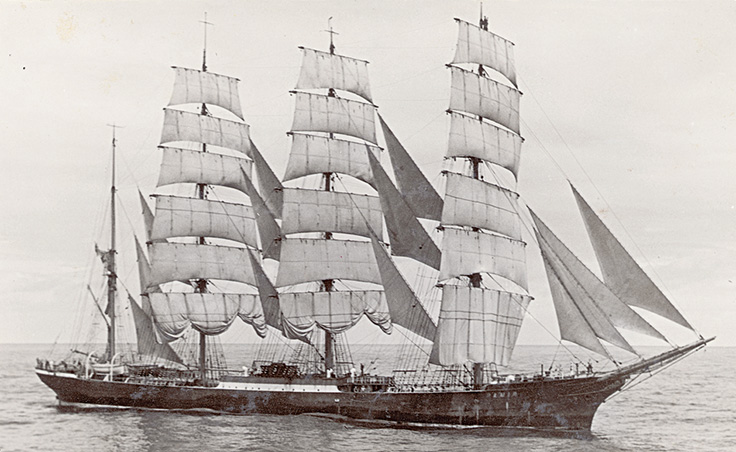
A few more additions on the subject of courage: In recent months, Torgit and I have often been told that it is incredibly courageous to throw our previous lives overboard and simply drive away. This statement was often coupled with respect, the desire to do the same or, alternatively, a complete lack of understanding.
The longer we were on the road, the less these voices were heard. But when we started to give notice on our apartment and sell all our belongings, those voices came back. Are you really sure? - At this time? Are you aware of what you will lose?
If we weren't aware of this, we would be now at the latest. Because prices are in the basement. But we are doing well. Apparently we are still healthy. And the financial damage is certainly minor compared to many others. As I said, we are extremely grateful for that.
But what about the courage to embark on such an adventure? It doesn't take courage, or at least not what we, I, perceive as courage.
Which brings me to a book tip. Although I define courage as "doing the rash thing", surely courage is more the willingness to do what you think is right in the face of expected disadvantages, or the ability to overcome your fear in a risky or dangerous situation? So the fireman who runs into a burning house or someone who dares to go on a real adventure is courageous. But do such real adventures still exist today?
"The end of a legend, told by someone who was there"
The book that my dad gave me one day is about an adventurer and one of the last real adventures from times gone by. It takes place shortly after the war and is about a young American, the student William F. Stark. He did everything he could to sign on to the "Pamir", one of the last merchant sailing ships. One of the merchant sailing ships that sailed from Australia, halfway around the world, across the South Pacific towards South America and around the legendary Cape Horn. I can recommend this book not only because it is a recommendation from Dad. But because it is about one of the last really great adventures. The story alone tells what the young student has to do not only to get to Australia, but also to get on the ship. What he doesn't know at the time is that the "Pamir" is the last windjammer to circumnavigate Cape Horn on a cargo voyage without an auxiliary engine. After reading the book, I can only begin to imagine the hardships the young men had to endure and the courage it takes to manage in the rigging of a sailing ship under the most extreme conditions. A good book, not just for sailors and adventurers, but simply for an evening by the fire or on the garden bench with a mug of rum.


Recent Comments